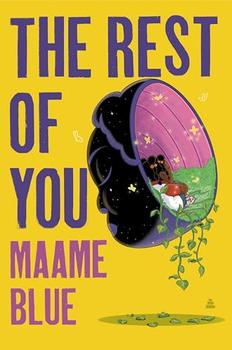Summary | Excerpt | Reading Guide | Reviews | Readalikes | Genres & Themes | Author Bio

From Chapter 1
Thunder sounded, very near, and the child woke. She moved in the bed, seeking the warmth and comfort of her older brothers' sleeping forms. Then she remembered. Her brothers were gone.
It was raining, a hard spring downpour that filled the night air with the sweet-sour smell of newly plowed earth. Rain thudded on the roof of the canon's cottage, but the thickly woven thatching kept the room dry, except for one or two small places in the corners where water first pooled and then trickled in slow fat drops to the beaten earth floor.
The wind rose, and a nearby oak began to tap an uneven rhythm on the cottage walls. The shadow of its branches spilled into the room. The child watched, transfixed, as the monstrous dark fingers wriggled at the edges of the bed. They reached out for her, beckoning, and she shrank back.
Mama, she thought. She opened her mouth to call out, then stopped. If she made a sound, the menacing hand would pounce. She lay frozen, watching, unable to will herself to move. Then she set her small chin resolutely. It had to be done, so she would do it. Moving with exquisite slowness, never taking her eyes off the enemy, she eased herself off the bed. Her feet felt the cool surface of the earthen floor; the familiar sensation was reassuring. Scarcely daring to breathe, she backed toward the partition behind which her mother lay sleeping. Lightning flashed; the fingers moved and lengthened, following her. She swallowed a scream, her throat tightening with the effort. She forced herself to move slowly, not to break into a run.
She was almost there. Suddenly, a salvo of thunder crashed overhead. At the same moment something touched her from behind. She yelped, then turned and fled around the partition, stumbling over the chair she had backed into.
This part of the house was dark and still, save for her mother's rhythmic breathing. From the sound, the child could tell she was deeply asleep; the noise had not wakened her. She went quickly to the bed, lifted the woolen blanket and slid under it. Her mother lay on her side, lips slightly parted; her warm breath caressed the child's cheek. She snuggled close, feeling the softness of her mother's body through her thin linen shift.
Gudrun yawned and shifted position, roused by the movement. Her eyes opened, and she regarded the child sleepily. Then, waking fully, she reached out and put her arms around her daughter.
"Joan," she chastised gently, her lips against the child's soft hair. "Little one, you should be asleep."
Speaking quickly, her voice high and strained from fear, Joan told her mother about the monster hand.
Gudrun listened, petting and stroking her daughter and murmuring reassurances. Gently she ran her fingers over the the child's face, half-seen in the darkness. She was not pretty, Gudrun reflected ruefully. She looked too much like him, with his thick English neck and wide jaw. Her small body was already stocky and heavyset, not long and graceful like Gudrun's people. But the child's eyes were good, large and expressive and rich-hued, green with dark grey smoke-rings at the center. Gudrun lifted a strand of Joan's baby hair and caressed it, enjoying the way it shone, white-gold, even in the darkness. My hair, she thought gloatingly. Not the coarse black hair of her husband or his cruel dark people. My child. She wrapped the strand gently around her forefinger and smiled. This one, at least, is mine.
Soothed by her mother's attentions, Joan relaxed. In playful imitation, she began to tug at Gudrun's long braid, loosening it till her hair lay tumbled about her head. Joan marvelled at it, spilling over the dark woolen coverlet like rich cream. She had never seen her mother's hair unbound. At the canon's insistence, Gudrun wore it always neatly braided, hidden under a rough linen cap. A woman's hair, her husband said, was the net wherein Satan catches a man's soul. And Gudrun's hair was extraordinarily beautiful, long and soft and pure white-gold, without a trace of gray, though she was now an old woman of thirty-six winters.
Excerpted from Pope Joan by Donna Cross Copyright© 1996 by Donna Woolfolk Cross. Excerpted by permission of Ballantine Books, a division of Random House, Inc. All rights reserved. No part of this excerpt may be reproduced or reprinted without permission in writing from the publisher.




If there is anything more dangerous to the life of the mind than having no independent commitment to ideas...
Click Here to find out who said this, as well as discovering other famous literary quotes!
Your guide toexceptional books
BookBrowse seeks out and recommends the best in contemporary fiction and nonfiction—books that not only engage and entertain but also deepen our understanding of ourselves and the world around us.